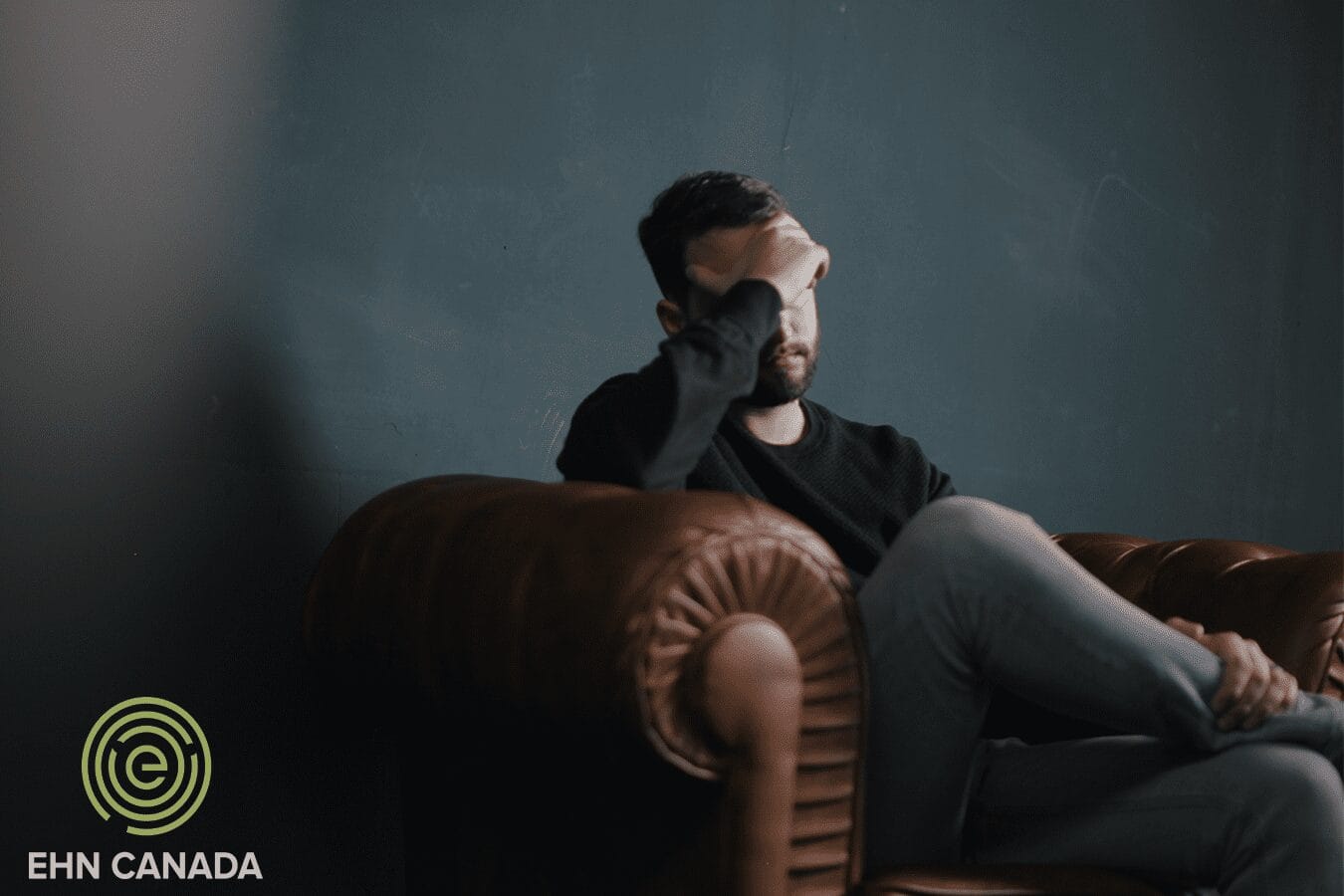Addiction related trauma develops after a severely shocking and painful experience transforms into a full-blown addiction to drugs or alcohol–usually as a way to cope with an unhealed trauma. Approximately 75% of people who receive treatment for addiction have experienced a severe traumatic event at some point in their lives—CJ was among this 75%.
He describes his first experience with opioids:
I remember the first time I took an opioid when I was a teenager. My friend handed it to me and I remember saying to him, “this is going to be a problem.” I knew in that moment that this drug was perfect for me… it would keep my feelings numb… burying the traumas I experienced as a child. That need to bury my feelings led me to all kinds of ways to try and escape.
Enrolling in the Canadian Armed Forces was another attempt CJ made to escape, without success:
After I came back from Afghanistan, I became a different person. It was really the tipping point for me… all the ways I had tried to conceal my trauma and addiction… finally I couldn’t control it anymore. I needed someone with me 24/7 and kept a gun close by at all times… I couldn’t be alone for a minute or I would become panicked and disoriented.
CJ had developed post-traumatic stress disorder (PTSD) which recreates the body and mind’s fight-or-flight responses long after the original traumatic event has passed.
Dr. Christina Basedow, Clinical Director at Edgewood Treatment Centre, describes it as follows:
When someone has PTSD they may be always primed for a fight-flight-freeze reaction. They can never fully rest: they think they must remain vigilant and may have very distorted ideas of an imagined, ongoing, and imminent threat.
Although CJ served in the war in Afghanistan, his PTSD actually resulted from multiple traumas that he had experienced during his childhood. Approximately 55% of people will experience at least one severely traumatic event during their lifetime; like CJ, 7 to 8 percent of them will go on to develop a formal diagnosis of PTSD. Continue reading Hyperlink here to full article on the webstie
According to Dr. Basedow:
Trauma is a very personal and subjective experience and can be a response to a solo event or the result of a continuous or systematic situation. Some of the causes of severe trauma that can result in PTSD are situations that expose someone to actual or threatened death, serious injury, or sexual violation, such as:
- Violence, assault, or bullying, including any of the following:
- Childhood physical, sexual, or psychological abuse;
- Domestic violence or assault;
- Sexual assault or abuse;
- Being a victim of, or participant in, war;
- Crime;
- Non-violent events or experiences such as accidents, natural disasters, neglect, and extreme deprivation;
- Witnessing or learning of someone else’s trauma in any of the following ways:
- Witnessing firsthand a traumatic event occurring to someone else;
- Learning of traumatic events experienced by loved ones;
- Exposure (often repeated) to the details of severe traumatic events: two examples are first responders collecting human remains and police officers processing information regarding incidents of child abuse.
If you think you or someone you love might have PTSD, take a self assessment
CJ turned to drugs and alcohol to help cope with the symptoms of PTSD; sadly, many other people who develop PTSD also take this approach. Fortunately for CJ, he recognized he had a problem, sought treatment, and found Edgewood.
CJ describes his arrival at Edgewood:
When I finally realized that there was something wrong, I made the call to get help. The most proud I ever was of myself, was walking into Edgewood [for treatment] and saying to the counselor, “I will do whatever you tell me to do if I don’t have to live this way anymore.”
Many people with unresolved traumas attempt to use drugs or alcohol to help themselves cope with their symptoms. However, many addiction treatment programs do not recognize when a patient’s addiction disorder is the result of an unresolved trauma. Addiction and PTSD exacerbate each other and so they must be treated concurrently; if a treatment program attempts to treat only one while ignoring the other, then it is unlikely to succeed.
For CJ, getting concurrent treatment for his PTSD and addiction finally put him on the road to recovery. He describes the change in is mindset: “I realized my life is worth it for me… I needed to recover for me… not anyone else. I now see worth in my own life and I am going to be okay.”
If you have concurrent trauma and addiction, EHN can help you with one of our integrated PTSD and Addiction programs.
Programs that are designed for first responders with PTSD and addiction disorders:
- Concurrent Trauma and Addiction Program (CTAP) at our Edgewood facility in Nanaimo, BC, click for more information;
- Operational Stress Injury & Concurrent Trauma and Addiction Program (OSI & CTAP) at our Bellwood facility in Toronto, ON, click for more information;
- Programme de Traitement Concomitant—Trouble de Stress Opérationnel et Dépendances program at our Clinique Nouveau Départ facility in Montreal, QC, click for more information.
Even if you do not have a PTSD diagnosis, EHN can help you with their trauma-informed programs at our Nanaimo, Toronto, and Montreal facilities. Trauma-informed care includes the following services:
- Individual therapy that teaches you to identify the triggers that can lead to cravings and relapse;
- 12-Step meetings where you can draw strength and inspiration from the common experiences and fellowship of others;
- Medication-based therapy using a combination of medications that can help ease your withdrawal symptoms;
- Anger management workshops that teach you how to experience and process anger in balanced, constructive, and healthy ways;
- Group sessions where common problems and challenges faced by people with concurrent trauma and addiction can be addressed communally;
- Family and couples counseling that educates family members about concurrent trauma and addiction, and helps rebuild and strengthen familial relationships.
If you are dealing with both trauma due to a past event and an addiction to drugs or alcohol, we can help you at EHN whether or not you have a PTSD diagnosis. By attending a program that is designed to treat both disorders at the same time, you can achieve a strong and lasting recovery.
We Can Help You
If you would like to learn more about the treatment programs provided by EHN Canada, enrol yourself in one of our programs, or refer someone else, please call us at one of the numbers below. Our phone lines are open 24/7—so you can call us anytime.
- 1-866-926-4196 for Bellwood Health Services in Toronto, ON
- 1-587-602-0266 for EHN Sandstone, in Calgary, AB
- 1-866-946-4806 for Edgewood Treatment Centre in Nanaimo, BC
- 1-866-965-4345 for Clinique Nouveau Départ in Montreal, QC



